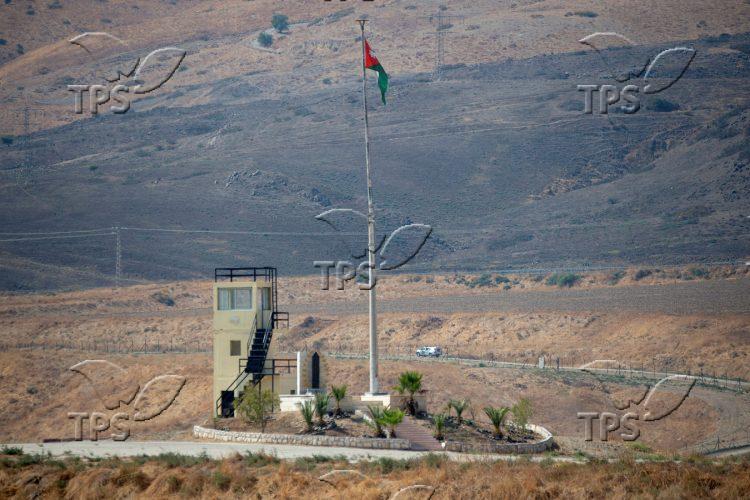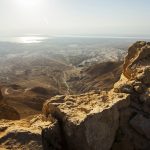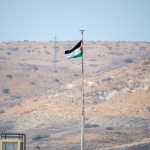Israel Arrests Lawmaker From Influential Jordanian Tribe for Smuggling Weapons
Jerusalem, 24 April, 2023 (TPS) -- On Sunday, Jordan’s Foreign Ministry announced that Israel had arrested a Jordanian parliamentarian for attempting to smuggle weapons and gold into Judea and Samaria.
According to the Jordanians, MP Imad al-Adwan was arrested on Saturday at the Allenby Bridge border crossing, 51 km east of Jerusalem.
Al-Adwan, born in 1988, is one of the youngest deputies in the Jordanian Parliament. A lawyer with a master’s degree in international law, he is a member of parliament’s Palestine Committee.
The Adwan clan, to which the lawmaker belongs, is one of the most powerful in Jordan. Hundreds of residents of Al-Adwan’s hometown of As-Salt are preparing to go to the Allenby Crossing to demonstrate for his release.
The arrest comes on the heels of increasing Israeli-Jordanian tensions during the Islamic month of Ramadan, which this year overlapped with the Christian holiday of Easter and the Jewish holiday of Passover.
Islamist Palestinians managed to barricade themselves inside the Al Aqsa Mosque for several nights, stockpiling stones and firecrackers. Israeli Police are also investigating whether pipe bombs were smuggled into the mosque.
Senior Israeli officials have pointed the finger at the Hashemite Kingdom’s top diplomat, Ayman Safadi, who also serves as deputy prime minister, for not working to reduce tensions at the holy site that earlier this month saw clashes between police and rioters.
Jordanian oversight over the Islamic Waqf, which administers the Temple Mount’s daily affairs, is enshrined in the Israel-Jordan peace treaty of 1994.
The Temple Mount, where the First and Second Jewish Temples were built, is the overall holiest site in Judaism. The Western Wall is the only remnant of a retaining wall encircling the Temple Mount built by Herod the Great in the first century and is the holiest site where Jews can freely pray.
Despite the tensions, 500,000 people visited the Western Wall and 2,200 Jews visited the Temple Mount during Passover. In the middle of the week of Passover, Israeli authorities banned Jews from visiting the Temple Mount for the remainder of Ramadan, which ended on April 21.
Rabbis are increasingly divided over Jews ascending to the Temple Mount. For centuries, the widespread rabbinic consensus was that the laws of ritual purity still apply to the site. But in recent years, a growing number of rabbis have argued that ritual purity laws don’t apply to all sections of the Temple Mount and encourage visits to permitted areas to maintain Jewish connections to the Mount.
In September, the number of Jews visiting the Temple Mount crossed the 50,000 threshold for the first time in modern history, according to Beyadenu, an organization working to advance Jewish ties to the holy site.
The delicate status quo governing the Temple Mount goes back to 1967, when Israel liberated the Old City of Jerusalem from Jordan during the Six Day War. Fearing a religious war, then-defense minister Moshe Dayan agreed to let the Islamic Waqf, a Muslim trusteeship, continue managing the holy site’s day-to-day affairs, while Israel would maintain overall sovereignty and be responsible for security.
According to the status quo, Jews and non-Muslims would be allowed to visit the Temple Mount, but not pray there.







